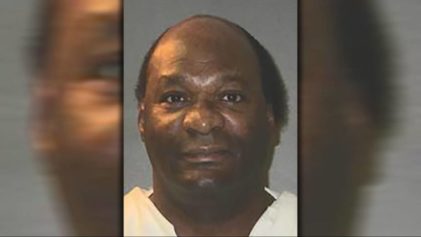Florida has a complicated history with capital punishment. The state leads the country in death-row exonerations and, since Florida Gov. Rick Scott has been in office, the state has been executing death-row prisoners at the fastest rate since the death penalty was restored in 1977. In 2016, the U.S. Supreme Court struck down Florida’s death penalty system as unconstitutional, saying that it gave judges too much power over sentencing. The law was revised but struck down again by the Florida Supreme Court for the same reason. A new law that now requires juries vote unanimously when imposing a death penalty sentence was signed by Scott just last month.
Recently, a new State Attorney from Orange-Osceola County has come to power in Florida. Aramis Ayala made history in the November election when she became Florida’s first African-American state attorney. An underdog in the race, Ayala’s road to success has been far from smooth. After being diagnosed with near-terminal cancer, she was forced to drop out of law school but, upon remission, returned more committed than ever. She went on to pass the Florida Bar and began working as an assistant public defender and assistant state attorney under Democrat Jeff Ashton.
In 2015 Ayala left Ashton’s office to run against him for State Attorney. During her campaign, she called for greater transparency in government and promised to bridge the gaps in justice in the Black community. Ayala was relatively unknown compared to near-celebrity Ashton, who gained notoriety as the prosecutor in the Casey Anthony case, where Casey Anthony was tried for the murder of her two-year-old daughter Caylee Anthony. Despite this disadvantage, she won by a landslide, with many crediting billionaire George Soros for her win, as the tycoon pumped millions of dollars into her primary race as part of a larger strategy to help Black attorneys become state attorneys. Ayala’s district, the 9th Judicial Circuit, is the third-largest in the state and represents 1.4 million people in the culturally diverse greater Orlando area.
Last month, Ayala continued her history-making streak when she announced that she would not seek the death penalty in any of her cases. She drew immediate criticism for her stance, especially as she was preparing to prosecute the murder trial of Markeith Loyd, who faces 11 criminal counts, including murder and firearm charges, for allegedly killing his pregnant ex-girlfriend Sade Dixon and Orlando Police Lt. Debra Clayton. Loyd was captured on January 17 following an extensive manhunt.
Ayala defended her position, saying that capital punishment in the state of Florida has only led to “chaos, uncertainty and turmoil” and that “some victims will support and some will surely oppose my decision, but I have learned that the death penalty traps many victims and families in a decades-long cycle of uncertainty, court hearings, appeals and waiting.”
Though Clayton’s family has not commented on Ayala’s decision, Dixon’s mother supports her decision and said in a statement, “You have to understand that we want closure. And closure doesn’t mean being dragged in and out of court with appeals and everything else.”
Governor Scott responded by demanding that Ayala recuse herself from the Loyd case. When Ayala called Scott to explain her position, he refused to hear her out and ended the call within 30 seconds. He proceeded to reassign the Boyd case to 5th Circuit State Attorney Brad King, a vocal supporter of the death penalty and has since replaced Ayala on 23 first-degree murder cases.
The United States remains one of the few developed countries that continues to execute its citizens. Outside of the inordinate costs to taxpayers and lengthy appeal process, the death penalty has been proven to be unfairly leveled against African-Americans. Since the days of slavery, it’s been used as a method to quell resistance and, even today, far more Black people are sentenced to death for killing whites than whites who murder Blacks. The demographics of death row prisoners reflect the same trends as the wider prison system, with Blacks making up a disproportionate amount of inmates. The current death row population is 41 percent Black, 42 percent white, and 13 percent Latino.
Following her removal from nearly two dozen cases, Ayala filed two lawsuits against Scott — one in the Florida Supreme Court and one in the federal court of the Middle District of Florida — arguing that state law gives her discretion in deciding whether and how to prosecute cases. The lawsuit claims that her removal from the Boyd case was an abuse of Scott’s executive powers and disenfranchises the voters who placed her in office. A coalition led by the Advancement Project and including representatives of the New Florida Majority, Dream Defenders, the Florida State Conference of the NAACP and Color of Change also filed an amicus brief charging Scott with refusing to recognize the voters’ will.
So far, Florida Republicans are holding tight to their position and recently proposed that $1.3 million be cut from Ayala’s office and redistributed to other state attorneys who get 9th Judicial Circuit cases. The Florida House is also backing Scott, and last week asked the Florida Supreme Court last week for permission to file an amicus brief in support of Scott.
The state of Florida currently has 381 prisoners on death row. Ayala has taken a bold step in denouncing a system that has disproportionately targeted African-Americans since its creation, and if the Florida Supreme Court rules in her favor, it will be a victory for all those who seek to see justice applied fairly and consistently.



